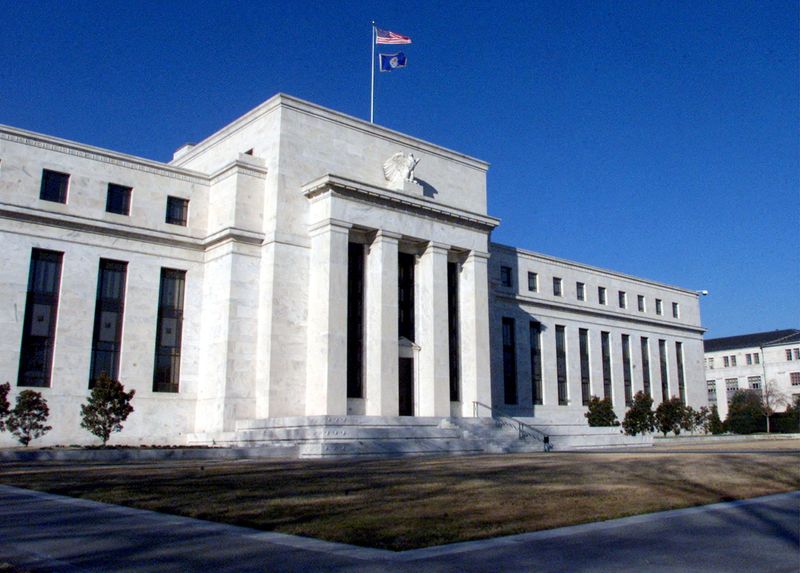LONDON (Reuters) - Major central banks are tentatively eyeing the end of aggressive interest rate hikes as price pressures finally show signs of abating.
Inflation remains high across the globe, but in some big economies has cooled faster than expected.
Upcoming decisions are on a knife-edge. Pausing too early could cause financial conditions to loosen too fast, re-igniting inflationary pressures. Stopping too late could trigger a credit crunch and a recession.
So far, nine developed economies have raised rates by a combined 3,840 basis points in this cycle. Japan is the holdout dove.
Here's a look at where central banks stand, ranked in terms of how much they have hiked rates so far this cycle.
1) UNITED STATES
The Federal Reserve raised rates by 25 basis points on July 26 to a range of 5.25%-5.50%, in its 11th rate increase of its last 12 meetings.
Fed chair Jerome Powell left the door open to more hikes but the market was unconvinced, with money market pricing implying traders thought this was the last hike of this cycle.
2) NEW ZEALAND
Having raised its cash rate to a 14-year high of 5.5% in May, the Reserve Bank of New Zealand kept it there in July.
This may have marked the end of a 20-month hiking cycle, with economists polled by Reuters expecting the central bank to stay put for the rest of 2023.
3) BRITAIN
The Bank of England meets on Aug. 3. Expectations for a big rate increase have eased after latest data showed inflation fell more than expected in June. The BoE's last increase in June to 5%, its highest since 2008, sent UK mortgage rates to a 15-year high.
Still, relief inflation may have peaked means markets have pulled back earlier bets of UK rates topping 6%.
4) CANADA
The Bank of Canada last hiked rates to a 22-year high of 5%on July 12. Minutes of that meeting showed policymakers had discussed delaying the move, but decided they could not risk inflation rebounding.
Canada's inflation rate fell to 2.8% in June. The BoC does not expect it to decline to its 2% target until mid-2025.
5) EURO ZONE
The European Central Bank on Thursday raised its deposit rate by 25 bps to 3.75%, its highest since 2000.
However, it removed a clear hint at further hikes from its policy statement, suggesting another increase at the next meeting in September was not a given.
6) AUSTRALIA
Australia's central bank held its key rate at an 11-year high of 4.1% in July and a slow down in inflation in the second quarter has eased pressure for further hikes.
Markets price in just a one-in-four chance of another rise in August, Governor Philip Lowe's (NYSE:LOW) penultimate meeting at the helm before being his deputy Michele Bullock takes over in September.
7) NORWAY
Norway's core inflation hit another record of 7% in June, meaning the tightening cycle is not over yet.
The Norges Bank raised rates more than expected by 50 bps to a 15-year high of 3.75% in June and a further hike is expected in August.
8) SWEDEN
Sweden's Riksbank is expected to keep raising rates, even with house prices 20% down since March 2022.
Inflation cooled to 6.4% in June, still far above its 2% target. Markets place an 80% chance of a 25 basis point hike to 4% in September following a same-sized move in June.
9) SWITZERLAND
Investors see a 50% chance the Swiss National Bank will raise rates again in September after inflation cooled to 1.7% in June.
The SNB has nudged rates up to 1.75%, from -0.75% in June last year.
10) JAPAN

The Bank of Japan, the world's most dovish major central bank kept its interest rate target at -0.1%, but shook markets by making its yield curve control policy more flexible.
The central bank kept its implicit cap on the 10-year bond yield at 0.5% but said that would be a reference rather than a "rigid limit", and signalled it would tolerate a rise up to 1%.